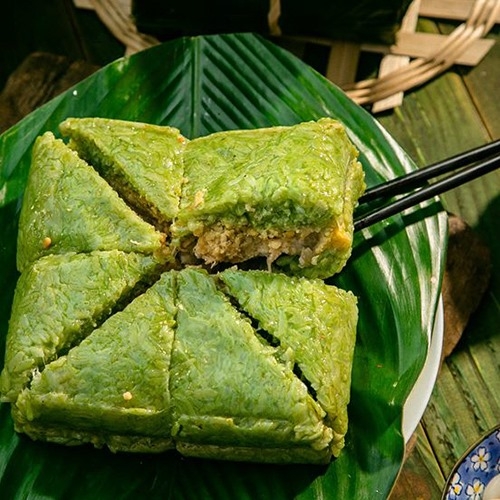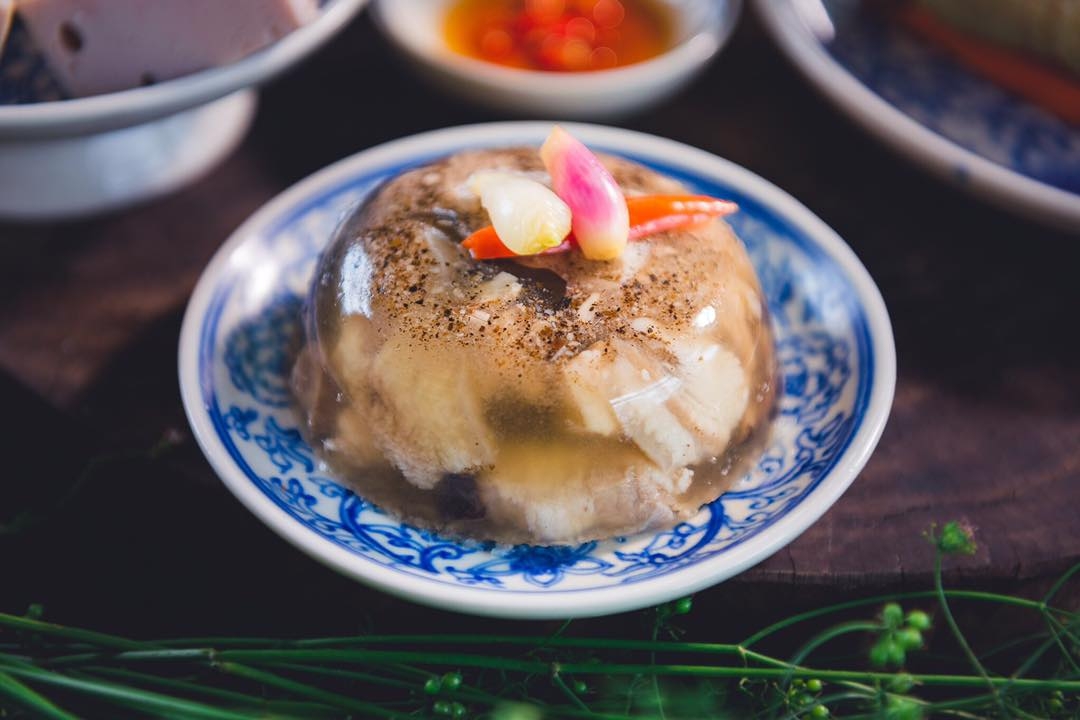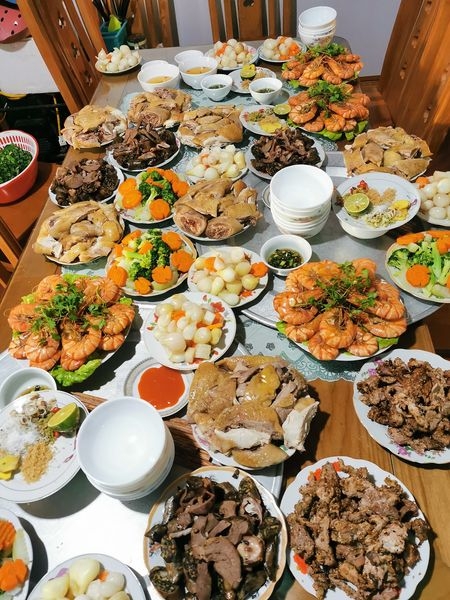 |
| The very soul of Vietnamese Tet is banh chung (square glutinous rice cake). Source: Internet |
Tet (Lunar New Year) is the time for all family members to get together while enjoying traditional dishes like banh chung (square sticky rice cake), gio lua (lean pork paste), thit dong (frozen meat stew), canh mang (bamboo sprout soup) and nem (spring roll). In Vietnam, this year’s Tet holiday started from February 10 and will end on February 16, or the fifth day of the first lunar month of the Year of the Ox.
Over-consuming sugar-loaded, calorie-laden and highly processed foods can cause “wild swings in our blood glucose levels due to the sudden surges in our insulin levels”, said Dr Look. “This can paradoxically make us even more hungry than usual the day after overeating.”
WHY DO YOU OVEREAT?
According to CNA, you don’t mean to overeat but before you know it, you’ve gone through several helpings of yusheng, more roast meat than you can handle and enough pen cai to see you through the month. How does that happen?
There are receptor nerve endings in the stomach wall that send signals to your brain when the stomach is full, said Dr Look, but this process can take about 20 minutes. “Overeating occurs when we eat beyond the stomach’s capacity and we may be beyond full by the time our brain stops us from consuming more food.”
Then, there’s the hormonal explanation. “Your body adjusts to overeating by releasing dopamine, a natural pleasure chemical that encourages you to eat even more.
“So even if overeating causes pain and discomfort, you may feel compelled to continue overeating,” wrote Professor Elizabeth Hartney, the director of the Centre for Health Leadership and Research at Royal Roads University, Canada, on Very Well Mind. “This is an important part of how food addiction develops,” she wrote.
 |
| Thit dong (pork meat cut into pieces cooked with fish sauce and peppers until it is well stewed and then let it cool and freeze it on the refrigerator). Source: Internet |
WHAT HAPPENS IF YOU KEEP OVEREATING?
There is the very real risk of your stomach expanding so much that you no longer feel full with the normal amount of food, warned Dr Look of the long-term damage.
There’s more. According to the University of Texas MD Anderson Center website, overeating frequently can even impact your sleep. “Your circadian clock, which controls your sleep cycles, causes your sleep and hunger hormone levels to rise and fall throughout the day,” noted the website.
“Overeating can upset this rhythm, making it hard for you to sleep through the night.”
Of course, you know that habitual overeating is a recipe for ill health that includes diabetes and colon cancer, which is “strongly related to a high-caloric intake”, said Dr Lin Jinlin, a consultant with Singapore’s Changi General Hospital’s Department of General Surgery.
The mechanisms that cause these diseases are complex and other factors – besides overeating – may also contribute to them, he qualified.
 |
| When filling your plate at the restaurant or at home, select larger portions of healthy dishes such as vegetables and lean meat (choose white meat). Source: Internet |
STOMACH CAN ACTUALLY BURST?
The stomach is a J-shaped muscular bag that is “virtually flat when empty and measures about 35cm along its greater curve”, said Dr Look. It has a capacity of about 50ml to 100ml when empty, according to Dr Lin, who also noted that when filled with food, your stomach can stretch to accommodate about four to five litres of food at its maximum. Dr Look added that when full, it can balloon to a diameter of about 10cm.
“As a rough approximation, an empty stomach is about the size of an average apple, while a fully stretched stomach is about the size of an average honeydew melon,” said Dr Lin.
Contrary to popular belief, your stomach size does not correlate to your gender or body weight, said Dr Look. “And it does not shrink when we go on a diet plan.”
But can you perforate your stomach by filling it with more than five litres of food and gastric juices? “The stomach has thick, muscular walls and it would not burst if you overeat,” said Dr Look. The stomach also has an escape outlet and unfortunately, the excess food goes out the same way it came in: Through your oesophagus.
“What can happen is, food and gastric acid backflow into the oesophagus, causing regurgitation and reflux,” said Dr Look. “This can trigger involuntary vomiting as the body tries to relieve itself.”
Your other digestive organs such as the pancreas and small bowel will also have to work harder, explained Dr Look. “This can stress our digestive system and cause symptoms such as indigestion, bloating and diarrhoea.”
HOW CAN YOU AVOID OVEREATING?
For starters, determine your portion size before you start eating, advised Dr Look, rather than eat till you are full. “Aim for 80 per cent fullness as our brain takes time to feel full,” he said. Here are other tips:
EXERCISE PORTION CONTROL
USE A SMALL PLATE AND LIMIT IT TO ONE
PRACTISE MINDFUL EATING
PLAN AHEAD AND EAT BEFORE VISITING FAMILY AND FRIENDS
LIMIT YOUR SWEETS INTAKE
DIVERT YOUR ATTENTION TO SOCIALISING
LIMIT LIQUID CALORIES
STAY HYDRATED
If, despite your efforts, you’ve over-stuffed yourself again, don’t make the mistake of fasting or skipping meals for the rest of the day or the following day. A study found that not only will eating one meal per day increase levels of ghrelin, the hunger hormone, it can also raise your fasting blood sugar and delay your insulin response.
Instead, get up after the meal and enjoy a stroll rather than lie down, advised Dr Look. “Physical activity helps stimulate stomach and intestinal motility, and helps in preventing bloating and discomfort after a big meal.”



